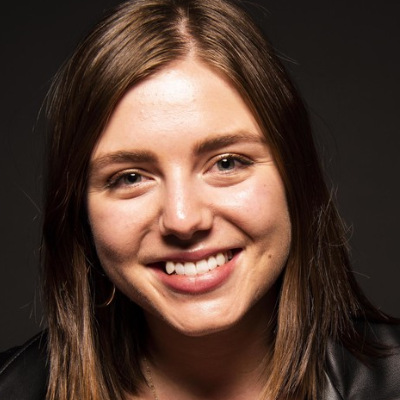How did you get into filmmaking?
I first got into filmmaking in high school. I loved the medium because I felt like it was a mix of everything I’m interested in, in terms of visual art, history, philosophy, and technology. So I knew that I wanted to go in that direction, and I decided to go to school in Montreal for filmmaking. I ended up doing a four year film production degree. Since then, I’ve been working in Montreal, writing and directing films.Can you tell us about some of the themes you explore in your work?
I like to really look at perspectives that are not generally explored in filmmaking. My characters come from the margins. I’m really interested in characters that represent a different perspective or are caught in between two worlds. Identity is a big question for me. I come from a Tunisian family, and I grew up in the U.S. after 9/11. I definitely saw a shift in how the Arab/Muslim world was perceived in the Western world. But I also knew that I kind of carried a special privilege, because I don’t look stereotypically Arab or Muslim. That’s why I’m really drawn to these themes. I’ve had a certain privilege because I look a certain way, and I feel a bit conflicted about that. I can see how my family members have been affected differently than me.What filmmaking advice would you have for people who are just starting out?
Follow your instincts. In terms of what stories to tell, or how to work with people, or how to select actors, just follow that inner voice. I doubt that will lead to any hardship, because once you tap into that, it’s the right way.Do you have any advice for filmmakers trying to get their projects funded?
I’ve funded all of my projects with grant-based money. What I tried to do in my grant application is address how this work is related to me personally. And what it represents in that point in my life, or that point in my journey. I think when jury members read that, and they see that the personal connection to the work, that’s what attracts them the most. Instead of referencing other films, or making it feel like an academic application, it really has to come from a personal place. I think that’s why I’ve been lucky enough to secure funding for my work.How do you use Vimeo?
I know that my distribution company, the one that distributed “Brotherhood,” they always use Vimeo’s unlisted links to share with festivals. It’s because of the quality. You can share such a high quality version of your work with Vimeo.
What’s amazing about the Staff Pick premiere is it really highlights the work. That’s what allows it to get viewership and then, over the following months, to be accessed more easily. I don’t know the exact number of people who have watched “Brotherhood,” but I know it’s quite a lot. I want my work to reach the most diverse audience that could be influenced by it. So that’s everything for me.